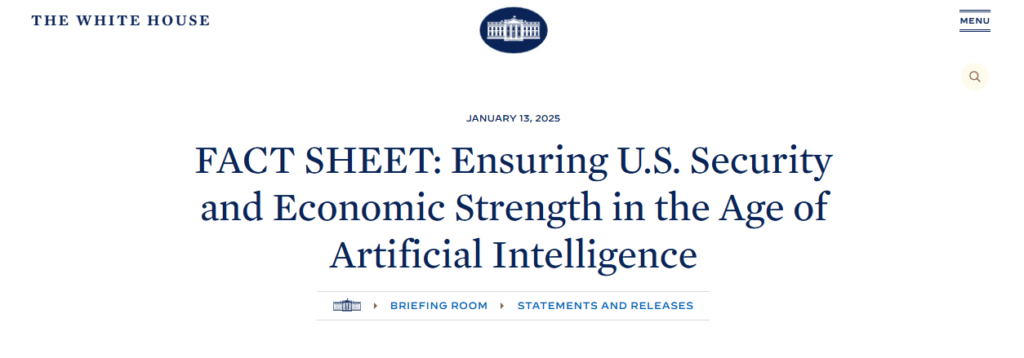New U.S. Export Rules Target AI Chips

AI chip exports to non-allied nations face new restrictions, except for high-security countries like the U.K. and Japan. The policy underscores the U.S. strategy to dominate the AI landscape.
On this page
On January 13, 2025, President Biden’s administration imposed broad restrictions on exporting AI chips and technologies critical to their development and deployment. The timing suggests a connection to Biden’s departure from office.

The report, “Ensuring U.S. Security and Economic Strength in the Age of Artificial Intelligence,” was published a week before Donald Trump’s inauguration. Its purpose is to safeguard America’s AI dominance while preventing hostile actors from leveraging advanced technologies for malicious purposes.
To enhance U.S. national security and economic strength, it is essential that we do not offshore this critical technology and that the world’s AI runs on American rails,
it reads.
The regulations limit exports of advanced GPUs crucial for neural network training and other AI technologies, primarily affecting countries outside the U.S. alliance.
Who faces the ban?
Eighteen allied nations, including Japan and the U.K., are excluded from the restrictions. Meanwhile, countries like China, Russia, Iran, and North Korea are explicitly banned from obtaining advanced AI capabilities.
Additional export licensing requirements have been imposed on over 120 countries. However, foreign governments may sign agreements to relax these measures, enabling a case-by-case approach to granting technology access.
Organizations that meet high-security criteria can achieve special classifications, such as “Universal Verified End-User” (UVEU) or “National Verified End-User” (NVEU).
UVEU. Organizations granted UVEU status must meet strict standards for security and trust, with their headquarters based in countries allied or partnered with the U.S. This status enables them to deploy up to 7% of the world’s AI computational resources globally.
NVEU. Entities located in low-risk nations can apply for NVEU status by meeting stringent security requirements. Approved organizations can acquire chips matching the computational power of 320,000 cutting-edge GPUs over two years.
Orders for chips considered low-risk, such as those typically used by universities and research centers, are exempt from the licensing process. This applies to chips with a processing capability roughly equivalent to 1,700 modern GPUs.
The content on The Coinomist is for informational purposes only and should not be interpreted as financial advice. While we strive to provide accurate and up-to-date information, we do not guarantee the accuracy, completeness, or reliability of any content. Neither we accept liability for any errors or omissions in the information provided or for any financial losses incurred as a result of relying on this information. Actions based on this content are at your own risk. Always do your own research and consult a professional. See our Terms, Privacy Policy, and Disclaimers for more details.
























